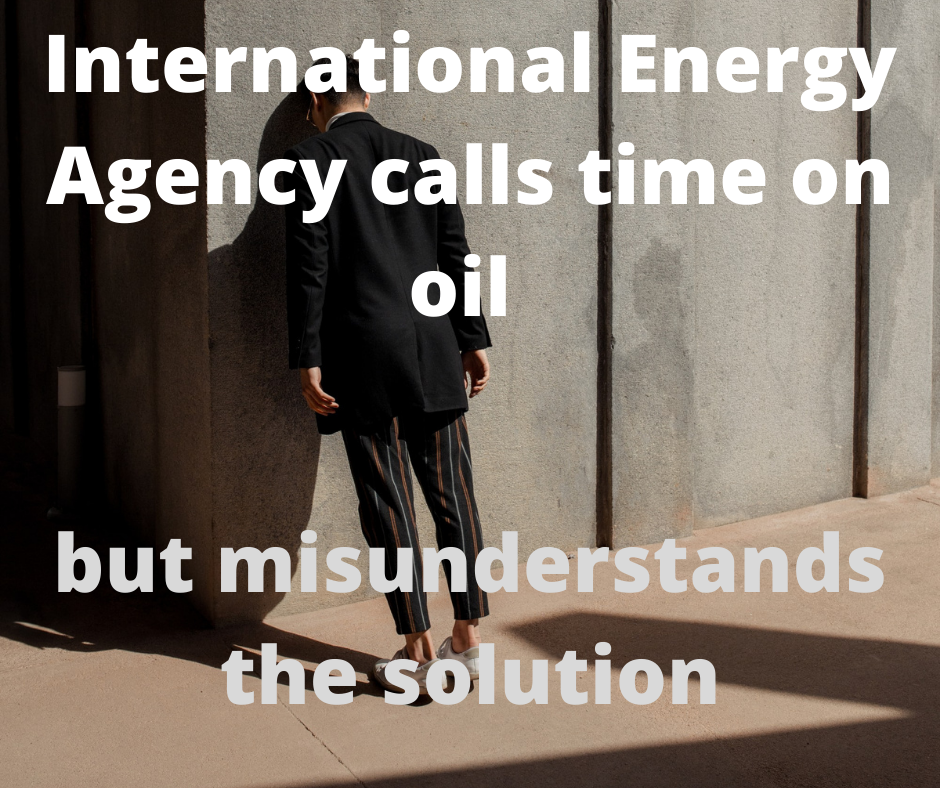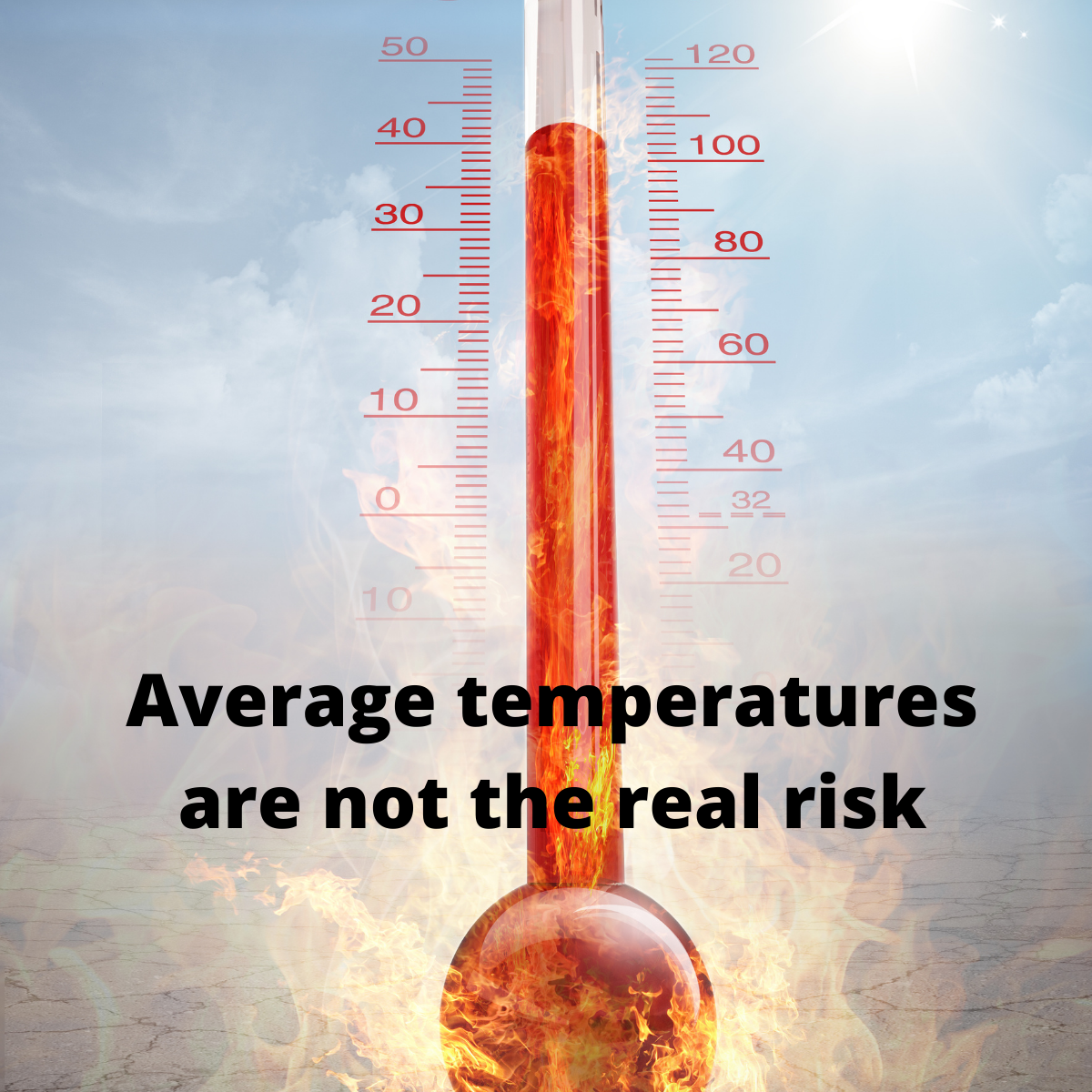The latest IPCC report on climate change highlighted the risks of to a terrifying degree, but there is hope.
The latest IPCC report gave clarity — some interpret it as bringing terrible news, but in truth, it mainly put into black and white what was, in any case, becoming obvious. Without doubt, the report did bring more certainty to the climate change challenge.
The report was a lot more specific with its numbers this time. It says there is a 67 per cent chance that global temperatures will rise by between 2.5 and 4 degrees from pre-industrial revolution levels should atmospheric carbon dioxide concentrations double relative to pre-industrial levels. (This is also called the sensitivity level).
This implies, of course, that there is a one in three chance that temperatures may either rise by more than 4 degrees or by less than 2.5 degrees. So there is still risk involved.
As Dr Paul Dorfman from the UCL Energy Institute told Techopian: “In the last year, climate models have run hot. We have seen a step-change in our fundamental understanding of what has happened over the last year in terms of the research the IPCC based its report on.”

Reality of climate change
If we are to defeat climate change, we must first accept it as real and accept that it poses a very serious danger to us all. Recent extreme weather events have helped hammer that point home.
“We only respond to those kinds of things when we see it with our own eyes,” said Dr Dorfman.
He added: “Once we get to 2.5 heading to 4 [degrees centigrade increase in temperatures] then all bets are off…we are in trouble, there is no question about it, but at last people and policy (makers) are taking notice. For me, what is hugely important and optimistic is that people are now taking this very, very seriously.”
Yes, the potential costs of climate change are catastrophically high, and we have gone down some misleading dead ends. Awarding a Nobel Prize to William Nordhaus for his economic modelling of climate change was an error. His models were too benign, and he discounted the future costs of climate change by far too great an extent. This paper by Australian economist Steve Keen explains the Notdhaus critique ably.
The climate change opportunity
But we also need to understand that climate change can be defeated. It can be defeated because this century has so far witnessed an extraordinary revolution in renewable energy and supporting technologies such as energy storage.
As a new report from IRENA pointed out,” The decade 2010 to 2020 saw renewable power generation becoming the default economic choice for new capacity.”
So far this century, worldwide renewable power generation has increased three-fold. Bear in mind that if in the year 2000 you had talked about the prospects of wind and solar, most experts would have laughed at you. This is because the costs back then were prohibitive.
“Costs for electricity from utility-scale solar photovoltaics (PV) fell 85 per cent between 2010 and 2020,” states IRENA.
That means the costs halved almost three times in a decade. Of course, renewable cynics say that solar does not follow an exponential function, but if the price falls of the last decade and two decades can not be described by an exponential function, it is difficult to say what can.
Projecting forward, climate change has also created an opportunity
As Matthew Hampshire Waugh, author of Net Zero, told Techopian, “Electrifying everything in the economy is very efficient. For example, an electric car uses three times less energy than a combustion engine; an electric heat pump uses four times less energy than a natural gas boiler…you will be using half the energy in a net-zero system than in the equivalent fossil fuel system,” for the same amount of consumption outputs, such as miles driven and food eaten.
When you factor in how net-zero systems use less energy, and then when you factor in the falling cost of renewables, a quite staggering conclusion begins to emerge.
Hampshire Waugh estimates that the shift to net zero will create around $170 trillion of wealth this century
He reckons a twenty-year time frame to get to net-zero is realistic.
In other words, if we can rapidly move to net zero, we will create a staggering amount of wealth via more efficient use of energy, but if we don’t do that, we will pay an enormous cost in terms of damage to the environment.
Scaling up
The key to the renewable revolution is scale; unlike fossil fuels, the more we scale up renewables, the cheaper they get. The sooner we scale up, limited only by infrastructure and logistics, the more we create these enormous savings.
Another warning
However, there is a risk. If instead of renewables, we adopt nuclear, then the fight against climate change will be lost.
Paul Dorfman explained that nuclear is a very poor complement to renewables. “Nuclear is very bad at ramping up and ramping down. So if the sun doesn’t shine or the wind doesn’t blow, you need something to switch on. Now nuclear doesn’t switch on. So the very last thing you need to support so-called intermittent renewables is nuclear.”
He added, “We need to invest, and in terms of bangs per buck, we only have a certain amount, and nuclear eats up all the pies. Nuclear is so prohibitively expensive that it has the potential to undercut seriously our other more practical, economic, doable, viable climate response options.”
The climate change challenge and renewables opportunity
So we face a choice. One option is to carry on or change slowly and pay a high price. We don’t know for sure what that price will be. A temperature increase of four degrees is within the IPCC probable range, and an increase of that scale would be disastrous. The IPCC report implies things could be even worse.
And remember, if average temperatures rise, extreme temperatures might rise even more.
A recent paper suggested that the extreme temperatures occurring in the recent heatwave in North West US and Canada, which claimed so many lives, “would have been virtually impossible without climate change.”

Another report found that climate change may create a nasty positive feedback loop, as higher temperatures lead to some melting of the permafrost in northern Asia, Europe and America, releasing methane into the atmosphere, leading to higher temperatures creating even more melting of the permafrost. “We suggest,” states the report, “that gas hydrates in fractures and pockets of the carbonate rocks in the permafrost zone became unstable due to warming from the surface. This process may add unknown quantities of methane to the atmosphere in the near future.”
Be under no doubt about the seriousness of this crisis — those who deny it or belittle are asking humanity to play Russian Roulette with its future.
Yet, the opportunity created is as exciting and uplifting as the risk is terrifying.
We know that the lifetime cost of electric cars, including the cost of energy, is already comparable to the lifetime cost of internal combustion engine cars. Moreover, we know that the cost of electric cars will continue to fall, eventually leading to cheaper transport. Without the imperative for change created by climate change, this benign revolution in transport would probably have not happened.
This illustrates the critical point — climate change has forced us to go down a different energy course, which will make us better off than if we had carried on as before — even without factoring in the cost of climate change.
We need to embrace the renewable revolution— stop all the nonsense about nuclear or geoengineering and scale-up that which we already have. The one things we definitely do not have more of is time and both of these options require huge amounts of time, resources, specialisation and money.

This is an opportunity that could have us dancing in the streets for joy — but only if we first take climate change seriously and secondly ignore the carbon fuel lobby, the delayers and nuclear lobby. These lobbyists look the gift horse called renewables in the mouth. Indeed it’s worse than that, and to disrupt the metaphor, they ignore the fine stallion called renewables and ask us to focus our admiring glances at the tired old mule heading for the knackers yard. Instead, we should be offering the carbon fuel and nuclear advocates our condolences.






Related News
Saving money and the planet— not a bad brace.
Jan 15, 2024
Solar revolution is back on thanks to falling cost of polysilicon
Jan 10, 2023
Tech bubble! Are you kidding?
Jan 06, 2023